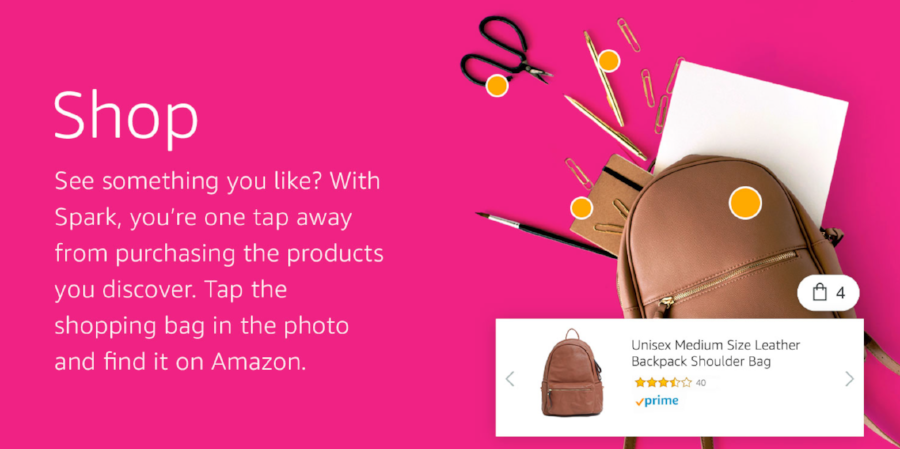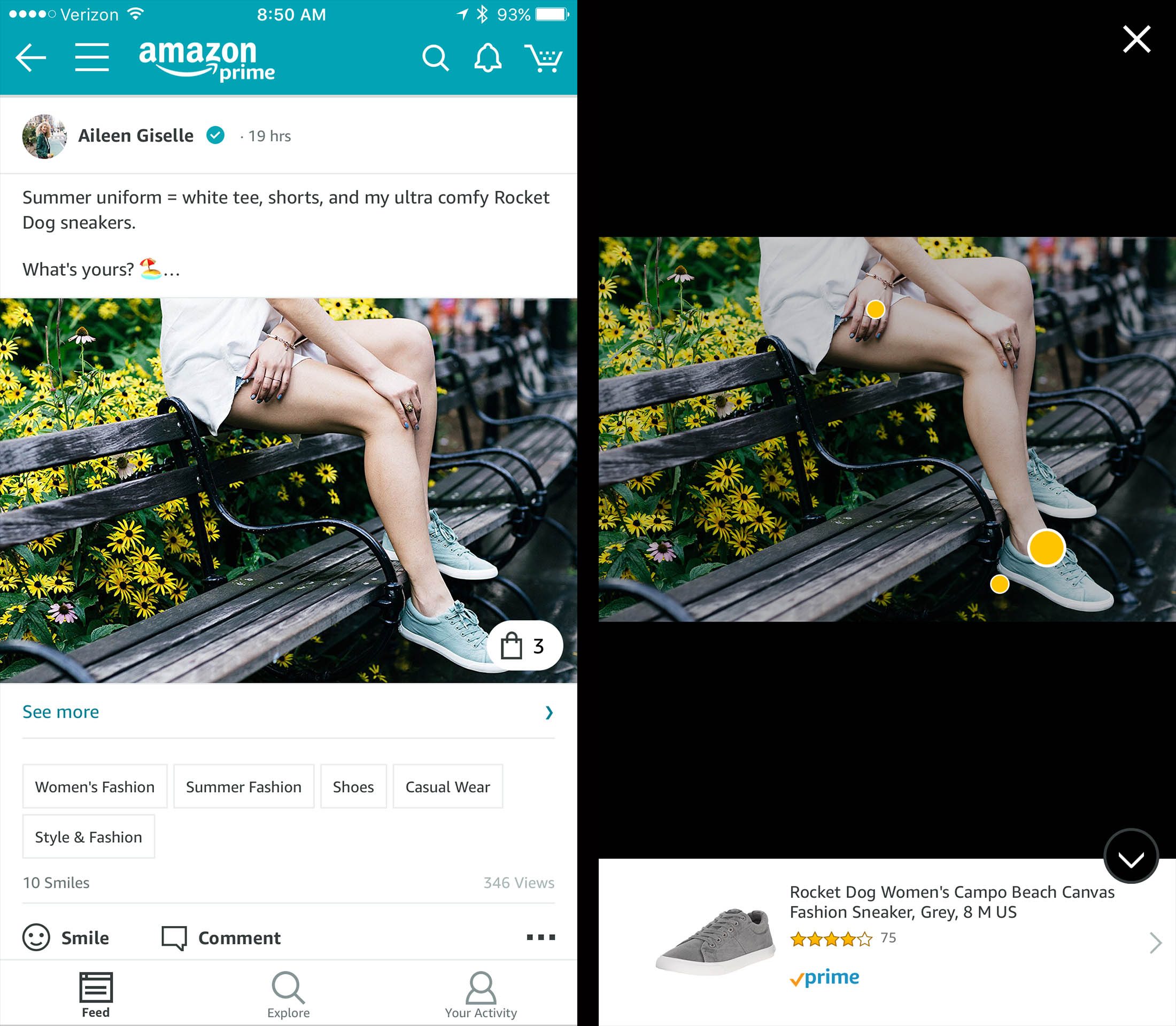
image: Amazon
After quietly launching an Influencer Program in April, Amazon is pushing out its sponsored content thanks to Spark. A commerce-oriented social network, which the Wall Street Journal describes as “a cross between Facebook-owned Instagram and social bookmarking site Pinterest,” Spark, is accessible through Amazon’s existing mobile apps, Spark encourages users to share images and videos and to follow other people’s posts, with content displayed in an Instagram-like feed.
Spark, which was introduced last month, is already fully stocked with posts from publishers and social media influencers, alike, which have been by Amazon to generate posts. In lieu of a compensation per sale model, “Invited publishers including influencers and bloggers receive compensation from Amazon for posts to Spark,” an Amazon spokeswoman said. That compensation takes the form of a flat fee for a specific number of posts, all of which link to Amazon products.
FTC and the Need for Disclosures
Much like Amazon’s existing Affiliates and Influencer programs, Sparks certainly stands to give rise to a whole slew of Federal Trade Commission (“FTC”) concerns. While an Amazon spokesman said that influencers and other publishers retain creative control over their posts, and are free to link to whichever products they choose, the FTC’s guidelines very likely still apply. And given the industry wide trend, these disclosures will be violated en mass in connection with Amazon’s spark platform. It is worth noting that while many posts on Spark do bear clear dislcosures, such as #sponsored, many do not.
As we set forth in previous FTC-related discussions, basic truth-in-advertising principles hold that it is deceptive to mislead consumers about the commercial nature of content, and that advertisements/promotions – no matter their medium – are deceptive if they appear to be something other than ads.
With this in mind, the FTC Act states that an act or practice is deceptive if there is a material misrepresentation or omission of information that is likely to mislead consumers acting reasonably in the circumstances. As such, the FTC has long required advertisers and promoting parties – alike – to disclose material connections that consumers would not know or expect so that they can make purchasing decisions accordingly.

An undisclosed Spark post
Given the FTC’s stance on influencers, Amazon’s newly tapped influencers will almost certainly need to include disclosures when they post on Spark, since they are, in fact, being paid to do so – something that many consumers may not know.
Additionally, since the FTC has held that the posting of a photo, even without explicit endorsement language, may be considered an endorsement, the inclusion of a link (from which the influencer stands to gain compensation) likely gives rise to the need for disclosure of that fact.
As always, the FTC is adamant that disclosures be “clear and conspicuous” – regardless of the medium (links on social media must be disclosed just as those included in blog posts), and “consumers should be able to notice the disclosure easily. They shouldn’t have to hunt for it.”
This new platform, while certainly a way for Amazon to achieve visibility within the fashion sphere, will also likely be a haven for potential FTC violations, as the vast majority of the industry’s most successful influencers are known to blatantly disregard the government organization’s regulations in order to dupe consumers (by making their endorsements look more authentic sans an #ad hashtag) and brands have been lax in their monitoring of such posts, as well. Stay tuned.










